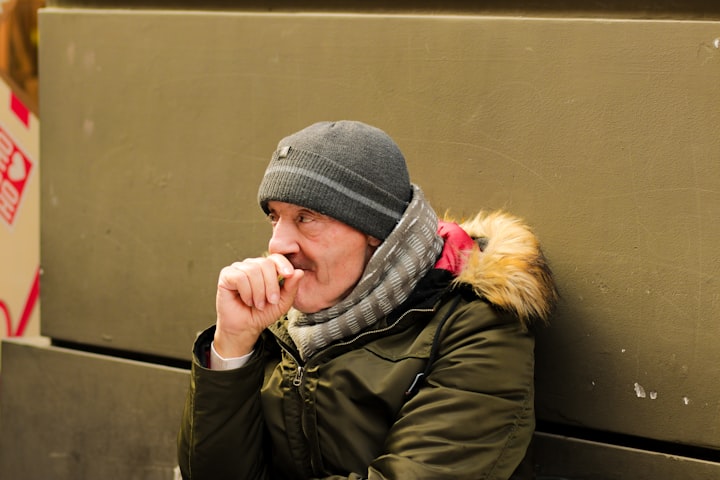Remembering Rodney King
Unlikely Hero, Dead At 47

Author’s Note:
Before Botham Jean and Atatiana Jefferson;
Before Tamir Rice;
Before Trayvon Martin;
Before Eric Garner;
Before Sandra Bland;
Before Rekia Boyd;
Before Laquan McDonald;
Before Alton Sterling;
Before Philando Castile; and
Before Mike Brown of Ferguson….
There was Rodney King.
Before cellphone, body and dashboard cameras, police were rarely, if ever, caught in the act of brutalizing anyone. But it just so happened that in suburban L.A., on an ordinary early evening in March of 1991, the cops “pulled over” a black man directly across from an apartment complex balcony.
On that balcony stood a man holding a then state-of-the art video camera. The rest, as they say, is history.
Or perhaps not. History, of course, refers to the past. The King beating occurred a full twenty-nine years ago. Yet, may I refer you back to the gruesome and blood-soaked list I opened this piece with? Paraphrasing Faulkner, the history of brutalizing black people by state agents (or paramilitaries, or wannabe state agents, or even non-state vigilantes) is not especially remarkable. It is not even past.
Of course, this list does not begin to scratch the surface of James Baldwin's "
"Many Thousands Gone,” whose destroyed lives could and should be added to this number.
This piece was written shortly after Rodney King’s not unexpected death and a few years after he suffered a public beating by a whole squad of L.A. cops — to within the proverbial inch of his life.
Again, it is now twenty-nine years later. Yet here we still stand, or, perhaps like Rodney, still we lie prostrate upon the carefully paved highways and roads in white America's mind.
Los Angeles experienced its worst ever public disturbances in 1992 following the acquittal of several white LA Policemen who, in ’91, on hidden camera, were caught savagely beating black motorist Rodney King.
This served as a wake-up call for both black and white America. Black people had been complaining for centuries about police (or other “official” and not so official) brutality and racial profiling, to no apparent avail. White people, for the most part, were not inclined to believe or accept such accusations; or they considered them as highly exaggerated. After all, the police were known to most of them as “Officer Friendly.” However, the Rodney King beating, the subsequent acquittal of all of the modern-day slave patrollers involved, and the fiery three-day riot, left no doubt that something was truly “rotten in Denmark.”
*+King was pronounced dead this morning, Sunday, Father’s Day, June 17, 2012. He was found at the bottom of a swimming pool at his home just outside Los Angeles. Pending an autopsy, no “foul play” is suspected. He was 47-years-old.
This video is almost an hour long. But if you would like to actually get a "live and in color," "up close and personal" view of "history"....This video covers most of the riot — from beginning to end.
Video credit: https://www.youtube.com/watch?v=l1kaoPIrtts
Officially, the riot resulted in the below listed dry statistics.
Unofficially, there is no real way of knowing the true, bloody, deadly, and accurate physical, emotional and spiritual effects of this “event.”
* 53 deaths
* 2,383 injuries
* Over 7,000 fires
* Serious damage to 3,100 businesses
* $1 billion in financial losses.
Smaller, sympathy riots erupted in San Francisco, Las Vegas, and all the way across the country in Atlanta, Georgia.
After the verdict, Los Angeles Mayor Tom Bradley said:
“The jury’s verdict will not blind us to what we saw on that videotape. The men who beat Rodney King do not deserve to wear the uniform of the L.A.P.D.”
President George H. W. Bush said:
“Viewed from outside the trial, it was hard to understand how the verdict could possibly square with the video. Those civil rights leaders with whom I met were stunned. And so was I and so was Barbara and so were my kids.”
(The kids? Would that be George W. and Jeb Bush)?
Rodney King was an unlikely “civil rights” or “black power” hero. By the time of the beating, he had been in and out of prison for robbery; and in fact, was on parole at the time. Later, one of the reasons he gave for not stopping when the police tried to pull him over was that he was afraid another DUI conviction would violate his parole.
Since the trial and the riot, King has been arrested several times, mainly for DUI and other alcohol-related offenses. He won a $3.8 million civil rights violation settlement against Los Angeles, which apparently only served to further fuel and enable his continued “bad behavior.”
Clearly, the man was no angel, but he did not deserve to be beaten to within an inch of his life for speeding.
Rest in Power, Rodney King.






Comments
There are no comments for this story
Be the first to respond and start the conversation.